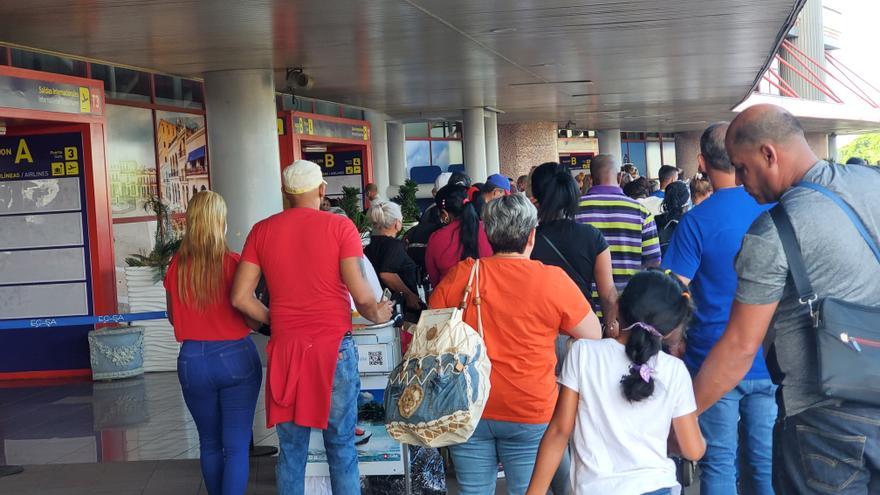
![]() 14ymedio, Madrid, 12 September 2023 — The U.S. Higher Board of Immigration Appeals rejected, on Monday, the possibility that migrants who entered the country with form I-220A (Order of Release on Recognizance) can resort to the Cuban Adjustment Act (LAC) to apply for residence, rather they will be required to process their political asylum in court on an ordinary basis.
14ymedio, Madrid, 12 September 2023 — The U.S. Higher Board of Immigration Appeals rejected, on Monday, the possibility that migrants who entered the country with form I-220A (Order of Release on Recognizance) can resort to the Cuban Adjustment Act (LAC) to apply for residence, rather they will be required to process their political asylum in court on an ordinary basis.
The decision is in accord with the US Government, which considers that the only option to benefit from the LAC is the humanitarian parole and not the I-220A, a document that is given to those who are released by the immigration authorities who arrested them when they entered the country illegally. More than 200,000 Cubans were waiting for the decision, since they aspired to apply for residency one year and one day after their arrival, as established by the LAC.
The ruling, which is being appealed, has generated great uncertainty and pain among Cubans who hoped for this path, which is more expeditious than that of individual political asylum
This was how a judge in Miami regularized the situation of a Cuban who arrived in the country with an I-220A in 2022. However, the Department of Homeland Security appealed the decision on the grounds that this permit does not constitute humanitarian parole and the Law of Adjustment is not applicable.
The ruling, which is being appealed, has generated great uncertainty and pain among Cubans who hoped for this path, which is more expeditious than that of individual political asylum.
If the Court of Appeals of the Eleventh Circuit (Alabama, Florida and Georgia) or the Supreme Court do not overturn the decision, Cuban migrants who possess the I-220A will be forced to bring their cases in court in an ordinary way, making it more expensive and prolonging a process that, in addition, could finally end in their being rejected and deported.
Last April, a group of Cubans met in front of the Versailles restaurant in Miami to demand an end to deportations and to support regularization for those who obtained an I-220A document when entering the United States.
At the protest, shouts were heard of “No to deportation!” “Freedom for political prisoners!” and “Down with the dictatorship.”
Since the new policy of the US Government came into force in January 2023, Cubans can benefit — as Nicaraguans and Haitians can — from the humanitarian parole that has worked for Ukrainians and Venezuelans since 2022. In this way, they manage to enter legally as long as they have a sponsor to endorse their stay in the country.
At the protest, shouts were heard of “No to deportation!” “Freedom for political prisoners!” and “Down with the dictatorship”
Between January 5 and this July, more than 41,000 Cubans have benefited from this new entry model. However, applications are processed more slowly than the thousands of people who aspire to leave the Island would like, and many risk opting for the illegal route.
So far this year, the US Government has returned to Cuba 4,264 people who tried to enter the country illegally. The latest data from the Office of Customs and Border Protection indicate that in the first nine months of this fiscal year, since October 1, 2022, more than 110,000 Cubans have crossed the southern border, and almost 7,000 have been intercepted by the Coast Guard on their way to the coasts of Florida.
Translated by Regina Anavy
____________
COLLABORATE WITH OUR WORK: The 14ymedio team is committed to practicing serious journalism that reflects Cuba’s reality in all its depth. Thank you for joining us on this long journey. We invite you to continue supporting us by becoming a member of 14ymedio now. Together we can continue transforming journalism in Cuba.
